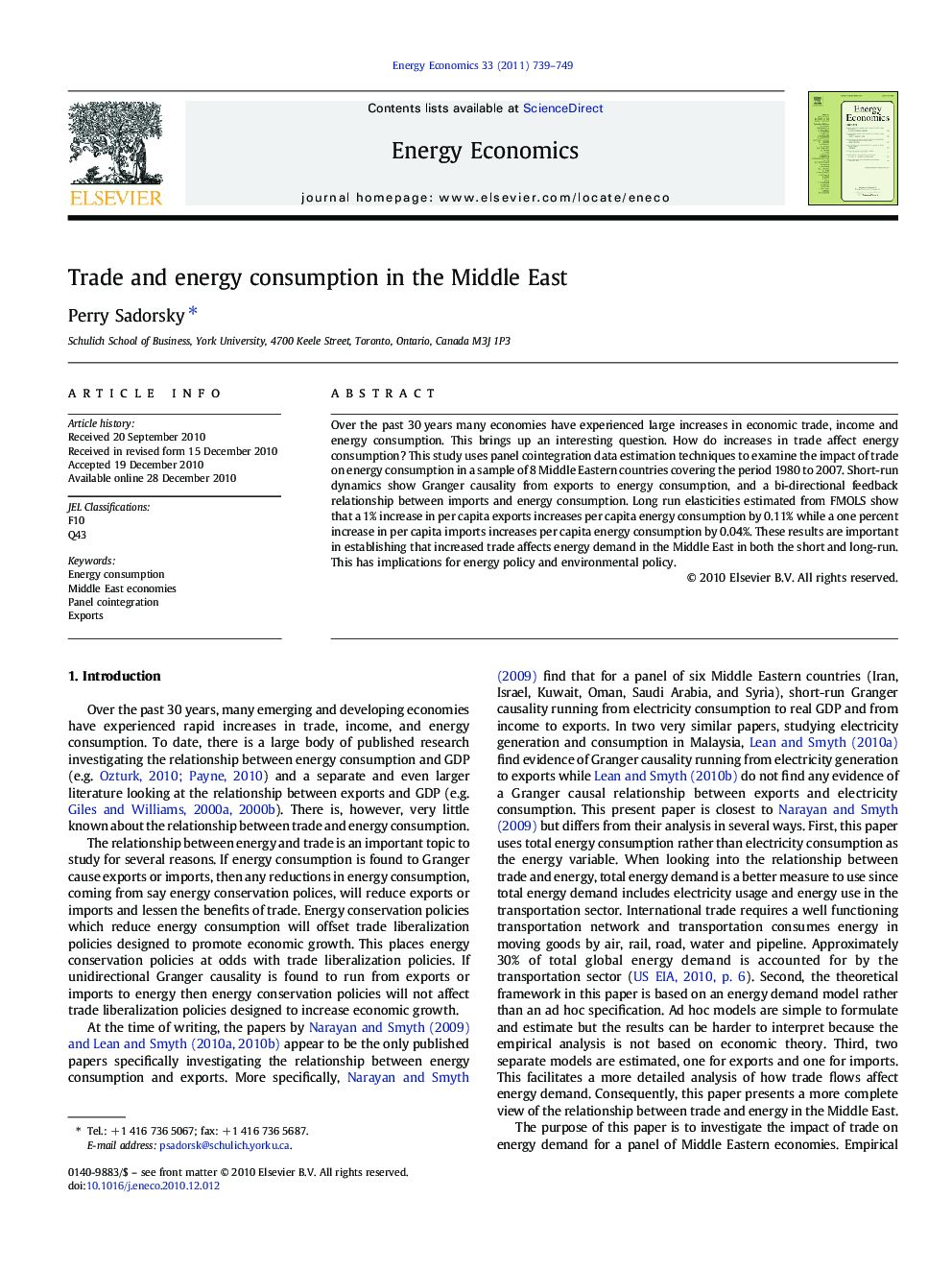| کد مقاله | کد نشریه | سال انتشار | مقاله انگلیسی | نسخه تمام متن |
|---|---|---|---|---|
| 5064988 | 1372301 | 2011 | 11 صفحه PDF | دانلود رایگان |

Over the past 30Â years many economies have experienced large increases in economic trade, income and energy consumption. This brings up an interesting question. How do increases in trade affect energy consumption? This study uses panel cointegration data estimation techniques to examine the impact of trade on energy consumption in a sample of 8 Middle Eastern countries covering the period 1980 to 2007. Short-run dynamics show Granger causality from exports to energy consumption, and a bi-directional feedback relationship between imports and energy consumption. Long run elasticities estimated from FMOLS show that a 1% increase in per capita exports increases per capita energy consumption by 0.11% while a one percent increase in per capita imports increases per capita energy consumption by 0.04%. These results are important in establishing that increased trade affects energy demand in the Middle East in both the short and long-run. This has implications for energy policy and environmental policy.
Research Highlights⺠Trade affects energy consumption in Middle Eastern economies. ⺠Short-run causality runs from exports to energy consumption. ⺠There is a short-run feedback relationship between energy consumption and imports. ⺠In the long-run a 1% increase in per capita exports increases per capita energy consumption by 0.11%. ⺠In the long-run a 1% increase in per capita imports increases per capita energy consumption by 0.04%.
Journal: Energy Economics - Volume 33, Issue 5, September 2011, Pages 739-749